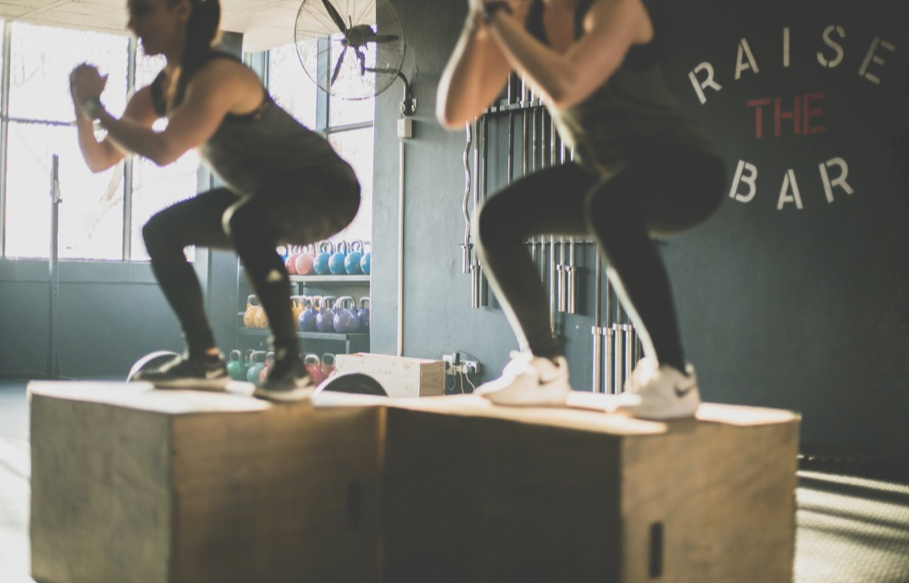
Psychology and the rising popularity of group fitness classes

The increase in the number of boutique fitness studios has continued to grow this year. According to the 2019 IHRSA Global Report, it doesn’t look like it’s going to stop anytime soon.
Between 2013 and 2017, memberships at traditional gyms grew by 15%, as reported by the International Health, Racquet, and Sportsclub Association. During that time, membership to boutique studios grew by 121%.
Although this gym format, and the classes that go along with it, can get pricey for the average consumer. There are a number of reasons based on consumer psychology for why group fitness settings are seeing success.
Here are just a few:
Community
Humans are wired to want community and a sense of belonging.
Matt Liberman, a professor from UCLA, studied how connection is a vital need; as vital as food, shelter, and water. He compiled his findings in a book – titled "Social: Why Our Brains Are Wired to Connect."
"Mammals are more socially connected than reptiles, primates more than other mammals, and humans more than other primates," Lieberman said. "What this suggests is that becoming more socially connected is essential to our survival. In a sense, evolution has made bets at each step that the best way to make us more successful is to make us more social."
The Zumba brand has leveraged this connectivity and community in their marketing strategy by referring to its customers as a “tribe,” giving each person a sense of belonging within its brand.
And when a sense of community and belonging is brought into a fitness setting, it makes for a more meaningful experience for each individual.
One study exploring the perceptions of self in an exercise class actually revealed that the more a group stuck together and remained united in pursuit of an objective goal during a workout, the greater each individual’s satisfaction.
A company utilizing this psychological tactic is OrangeTheory Fitness. In addition to measuring each person’s workout (i.e. how many calories burned, heart rate, etc.), they measure how the group did as a whole. This can make for a more satisfying experience for every person walking out of a class.
Experiential
Consumers are looking for more experiences. And if it’s unique, even better.
“Taking a group fitness class, it turns out, is one of the few things you can’t order from Amazon,” according to The New York Times. “Group fitness studios now make up a big part of what’s been called the ‘experiential economy,’ after the ‘experience economy,’ a phrase first introduced via Harvard Business Review by B. Joseph Pine II and James H. Gilmore 21 years ago.”
Experience is key to what makes a lot of these studios so popular, especially among younger consumers.
A study by the Harris Group found around 78% of millennials "would choose to spend money on a desirable experience or event over buying something tangibly desirable, and 55% of millennials say they’re spending more on events and live experiences than ever before."
SoulCycle has built their brand on customer experience. It was one of the first boutique fitness studios to dim the lights, turn up the music and make their instructors the star of the show.
Customizable
Research has shown that consumers appreciate items and experiences that are tailored to them or can be easily customized to fit their wants and needs.
In fact, Deloitte research from 2015 revealed: “1 in 4 consumers are willing to pay more to receive a personalized product or service.“
The ability to customize is something group fitness classes often bring to consumers.
In a study exploring group fitness classes, people reported feeling intrinsically satisfied when the group activity was customizable.
In an OrangeTheory workout, a person can identify themselves as a power walker, jogger or runner. From there, they are given a different base, push and “all-out” pace at a given time.
Additionally, there are often different variations of the same exercise utilizing weights, so you have the ability to modify based on ability or your desired area of focus.
Social Proof
The term “social proof,” coined by Hubspot, is the idea that if one person is doing something, someone else will have an innate desire to do that same thing in an effort to “fit in” to the social norm. Social proof can appear in a number of different ways — from seeing a social influencer approving of a brand or product, to a friend making a recommendation.
Yet it could go beyond a person’s desire to fit in. Consumer Psychologist Dante Pirouz found that this kind of behavior is based on who people tend to intrinsically trust, which is why referrals from your own internal circle (friends and family) are so effective at driving sales growth.
Many studios, like gyms, offer incentives to customers for referring a friend.
One studio utilizing this tactic is CycleBar. Consumers can earn points toward their CycleBar Rewards program for every friend they refer to the studio, which can be used to redeem perks like gift cards, coupons, and travel vouchers.
And that’s how a lot of new consumers are joining the growing number of fitness studios.
Whether it's building a community, providing an experience, offering customizable exercises or social proof — boutique fitness studios have found a number of ways to brand and build upon each consumer psychology tactic.

Andrea Gonzales-Paul is a brand journalist at Quikly. Her background is in storytelling, specifically working in TV news and documentary filmmaking.
